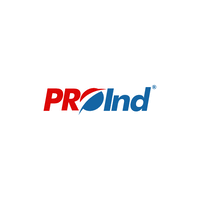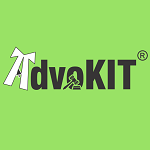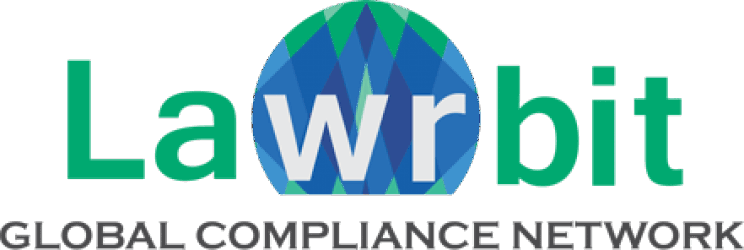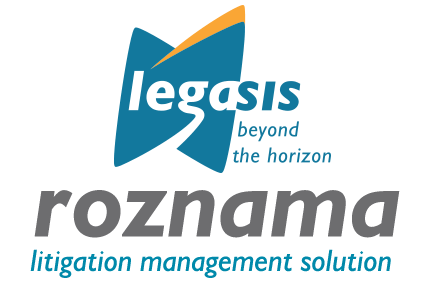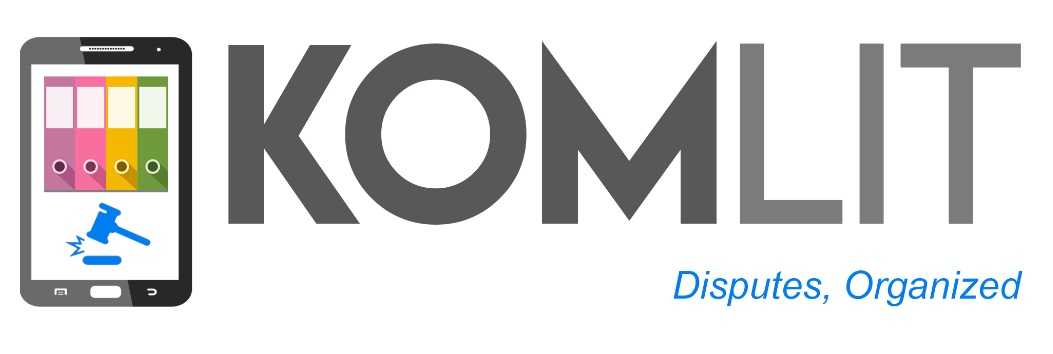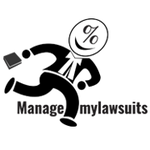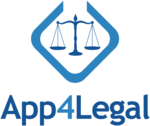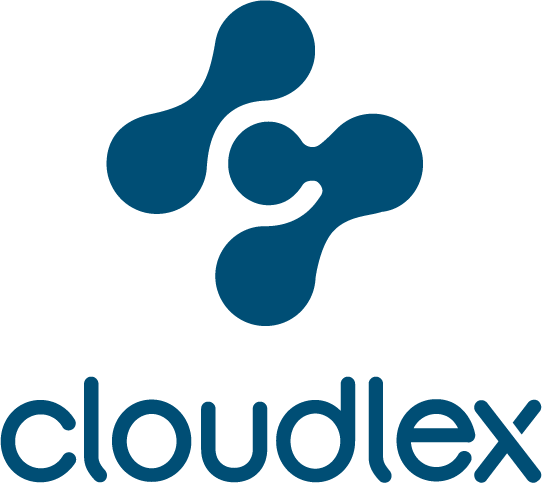Yes, most litigation management software may be accessed from a variety of devices and platforms, including desktops, laptops, tablets and smartphones. This means that lawyers and legal professionals can access and handle their cases from any location, at any time. Furthermore, many modern litigation management software provides cloud-based solutions, allowing users to access the software and data from any device with an internet connection.
List of 20 Best Litigation management Software
MatterSuite - ELM is a law practice management system ideal for solo lawyers and firms of any size. This all-in-one software automates daily tasks and optimizes business operations, freeing up your time to provide excellent legal services to your cli...Read More MatterSuite - ELM
Zelican: a, cloud-based platform built to enhance operations for Corporate Legal Departments, Law firms, Lawyers, and Attorneys. Boasting a user-friendly interface and modern design, Zelican provides a diverse set of tools to streamline all legal tas...Read More Zelican
Smokeball, the ideal law management software for small firms. Designed with simplicity in mind, this platform streamlines all aspects of your legal practice, customized to your local jurisdiction. Its user-friendly interface enhances efficiency and e...Read More Smokeball
Lex Mantra is a corporate legal solution that streamlines legal workflow and reporting for businesses. This innovative software automates event and deadline tracking for legal matters, generating comprehensive reports with just one click. Eliminate m...Read More Lex Mantra
Volody Compliance Management System solution for all your compliance requirements. Our user-friendly platform offers a comprehensive range of compliances, assigns responsibilities and establishes escalation processes for timely alerts. Easily monitor...Read More Volody Compliance Management System
LexComply is a GRC (Governance, Risk and Compliance) solution that enables clients to efficiently and proactively manage their regulatory compliance and internal controls. Our user-friendly software provides 13 SaaS-based risk and compliance manageme...Read More LexComply
Proind LPMS - the premier litigation management software that empowers you with customizable role-based access, efficient document management, and flexible deployment options on-premise or on the cloud. Maximize your legal processes with our advanced...Read More Proind LPMS
AdvoKIT is a software solution for optimizing your advocacy efforts. With AdvoKIT, you have everything you need to efficiently manage campaigns, target specific audiences, and analyze crucial data. Our user-friendly interface streamlines the creation...Read More AdvoKIT
TCDI ediscovery is a software for effectively managing large amounts of digital data in the legal industry. Our tailored solutions ensure a seamless and precise discovery process, giving you the freedom to focus on achieving a favorable outcome for y...Read More TCDI ediscovery
Litify is a specialized legal platform that revolutionizes the way law firms and in-house teams operate. Our cutting-edge solution streamlines processes, offers live data, and automates tasks to foster continuous success and business growth. With Lit...Read More Litify
Legistify is a legal management platform tailored for enterprise users. Our suite encompasses all aspects of law, from contracts and litigation to legal notices and intellectual property rights. Our modules can be personalized to suit your specific r...Read More Legistify
Lawrbits Legal Matter Management Solution: a comprehensive tool designed to streamline the entire lifecycle of legal matters. Effectively manage costs and mitigate risks with a centralized platform for all Legal Matter users to monitor and collaborat...Read More Lawrbit's Legal Matter
Legasis Roznama - a software utilizing Artificial Intelligence to facilitate simplified management, collaboration, and evaluation of legal disputes. With its state-of-the-art capabilities, Roznama empowers seamless tracking and resolution of legal is...Read More Legasis Litigation Management - ROZNAMA
Komlit solution for efficient management of your litigation portfolio. This comprehensive software simplifies the complexities of dispute management, giving you valuable insights and streamlining processes with just a few clicks. Stay organized and a...Read More Komlit
Manage My Lawsuits is is a solution for managing your legal cases. Designed to streamline case handling and foster collaboration among your team, our software automates legal processes. With features like automatic hearing date reminders, efficient d...Read More Manage My Lawsuits
CaseFleet is a case management tool designed to streamline the legal process for attorneys. With its advanced features, CaseFleet helps lawyers efficiently organize evidence, create timelines, and manage documents for stronger cases. This user-friend...Read More CaseFleet
App4Legal is a legal technology solution designed to streamline case management, automate contract procedures, and optimize billing processes for legal professionals. Our platform offers secure document storage, customizable workflows, and tools to e...Read More App4Legal
CloudLex is a personal injury legal software designed for plaintiff firms. Effortlessly manage every aspect of your practice, from client intake to case resolution, and beyond. As the undisputed choice for the legal industry, CloudLex provides Legal...Read More CloudLex
LEAP Legal is a cloud-based practice management software tailored to meet the needs of law firms. Our comprehensive platform offers a range of essential features, including matter organization, legal form automation, email management, time tracking,...Read More LEAP Legal
Zoho Creator is business process management software that simplifies complex processes while optimizing functionality. Its user-friendly interface allows for the creation of process-based applications, automation of routine tasks, and efficient manag...Read More Zoho Creator
Learn More About Litigation management Software
- What Is Litigation Management Software?
- What Are The Recent Trends In Litigation Management Software?
- Benefits Of Using Litigation Management Software
- Important Factors To Consider While Purchasing Litigation Management Software?
- What Are The Key Features To Look For In Litigation Management Software?
- Why Do Businesses Need Litigation management Software?
- How Much Time Is Required To Implement Litigation Management Software?
- What Is The Level Of Customization Available In Litigation Management Software?
- Which Industries Can Benefit The Most From Litigation Management Software?
- Conclusion
What Is Litigation Management Software?
Litigation management software is a critical tool for law firms and legal departments trying to streamline operations and increase productivity. It is specialist software that aids in the management of the entire litigation process, from case intake to settlement or trial. At its foundation, litigation management software aims to centralize and organize all case-related information. This includes important documents, correspondence, evidence, and deadlines.
This software allows users to readily access and track the status of each case, ensuring that nothing falls through the gaps. In addition to case management, litigation management software provides document management, task management, and communication facilities. These capabilities enable teams to successfully cooperate and keep track of all tasks involved in a case, enhancing efficiency and lowering the risk of errors.
One of the primary advantages of adopting litigation management software is the ability to automate processes. This implies less time and effort spent on manual operations, which frees up valuable resources for more critical activities. Furthermore, the program may provide reports and analytics, which provide useful information about case performance, resource allocation, and general efficiency.
When looking for litigation management software, customers should evaluate the specific features they require, such as legal calendar management, e-signature capabilities, and connectivity with other products. They should also look into security measures, as protecting important legal information is critical. Overall, investing in litigation management software can help legal professionals streamline their operations and increase overall efficiency. This software can help clients achieve better results by automating tasks, centralizing information, and improving cooperation.
What Are The Recent Trends In Litigation Management Software?
In recent years, litigation management software has emerged as a vital tool for law firms and legal departments. The features and capacities of these software packages evolve in tandem with technological advancement.
We will look at recent trends in litigation management software to assist you make an informed decision when comparing different options for your firm.
1. Cloud-Based Solutions: One key trend in litigation management software is the move to cloud-based solutions. This enables legal teams to view case data and cooperate on cases from any location with an internet connection. It also eliminates the need for costly on-site servers and IT support, making it an economical choice for small and medium-sized businesses.
2. Artificial Intelligence (AI) And Automation: With the advancement of AI, litigation management software can now automate repetitive operations like document inspection and analysis, saving time and decreasing human error. AI-powered technologies also increase the accuracy and efficiency of legal research, allowing legal teams to make better conclusions.
3. Integration With Other Software: Another development in litigation management software is the incorporation of other regularly used software, such as document management systems and e-discovery tools. This enables seamless data sharing and streamlines the entire litigation process.
4. Mobile Compatibility: As more people use smartphones and tablets, there is a greater demand for mobile-compatible litigation management software. This enables legal teams to access case information and operate from anywhere, making remote case management easier.
5. Data Protection: With the rise of cyber threats, data protection has become a significant priority for law firms. As a result, many litigation management software companies are focusing on integrating severe security features, such as encrypted communication and secure cloud storage, to protect sensitive case information.
6. Customizable And User-Friendly Interface: As the legal sector grows more technologically advanced, there is a greater demand for litigation management software with customizable and user-friendly interfaces. This enables legal professionals to simply navigate the platform, manage case progress, and generate reports without requiring substantial training or IT help.
7. Predictive Analytics: Litigation management software may now use predictive analytics to examine previous case data and forecast the result of current cases. This enables attorneys to make more strategic judgments and provide better insight to their clients.
Benefits Of Using Litigation Management Software
Litigation management software is a valuable tool for law firms and legal departments because it streamlines and automates many of the time-consuming tasks involved in handling many legal matters.
Here are the main advantages of adopting lawsuit management software:
1. Increased Efficiency And Productivity: Litigation management software helps lawyers and legal professionals manage their workload by automating tasks like case monitoring, document management, and communications. This improves efficiency and productivity, allowing them to handle more cases in less time.
2. Centralized Case Management: Litigation management software has a central database where all case-related information, such as documents, emails, and contacts, may be kept and retrieved. This eliminates the need for several systems and streamlines case management, ensuring that all information is structured and accessible.
3. Improved Communication And Collaboration: Collaboration is essential in the legal profession. Litigation management software enables lawyers and team members to interact and cooperate on cases in real time, regardless of location. This improves teamwork and ensures everyone is on the same page.
4. Time And Cost Savings: By automating duties and streamlining processes, litigation management software reduces the time and expenses associated with handling legal disputes. This involves lowering the amount of administrative labor required and limiting errors that could cost the company or department money.
5. Improved Reporting And Analytics: Litigation management software frequently includes a reporting and analytics capability, enabling legal professionals to access real-time data and generate reports on case progress, deadlines, and expenses. This allows them to make more informed judgments and highlight areas for improvement.
6. Improved Risk Management: By centralizing all case information and increasing visibility, litigation management software helps to reduce the risks connected with legal matters. It enables lawyers to spot potential difficulties early on and take corrective action, lowering the likelihood of costly errors.
7. Compliance And Security: Legal matters frequently contain sensitive and confidential information. Litigation management software provides extensive security methods to safeguard this information, assuring compliance with requirements like as HIPAA and GDPR.
Important Factors To Consider While Purchasing Litigation Management Software?
When it comes to choosing litigation management software, there are several variables that must be considered in order to make an informed decision. As a buyer, you should conduct comprehensive research and carefully examine these variables to ensure that you get the best software for your needs.
Here are some crucial considerations to consider while selecting lawsuit management software:
1. Feature Set: It is critical to determine the precise functionality you desire in litigation management software. Create a list of must-have features, such as case and document management, task management, time tracking, reporting, and collaboration tools. This will help you limit down your alternatives and select software that is tailored to your exact requirements.
2. User-Friendly Interface: All users should find the software's interface straightforward and easy to operate. This is especially critical if you have a team of lawyers and other employees who will be using the program. A convoluted interface can result in a steep learning curve and reduce productivity.
3. Compatibility And Integration: Before making a purchase, be sure the software is compatible with your existing systems and integrates flawlessly with other products you use. This will help you avoid snags in your process while also saving time and effort.
4. Customization And Scalability: The software should be adaptable to your company's specific requirements while also being expandable to handle future growth. This is critical because your company and caseload may evolve over time, and you don't want to invest in software that may become obsolete.
5. Security: Because litigation management software handles sensitive and confidential information, it is critical to choose a product that includes strong security features such as data encryption, access controls, and safe cloud storage. This ensures that all of your data is safe from cyber threats.
6. Cost And Value: Consider the software's total cost, including installation, training, and any ongoing costs. It is critical to assess the value of the software in terms of features, functionality, and influence on your company's operations and bottom line.
7. Customer Support: Effective customer service is essential for resolving any problems or inquiries that may emerge while using the product. Look for a company that provides dependable and timely customer service via many channels such as phone, email, or live chat. By taking these elements into account when selecting litigation management software, you can make an informed selection and select software that fulfills your organization's requirements while also allowing you to manage your cases efficiently and effectively.
What Are The Key Features To Look For In Litigation Management Software?
When choosing the best litigation management software for your company, it is critical to carefully analyze the essential features that will best match your individual requirements and help you expedite your legal operations.
The following are the main features to look for in litigation management software.
1. Case Management Tools: The capacity to manage and track your cases efficiently is an important feature of any litigation management software. Look for features like case scheduling, document management, and collaboration tools to enable smooth case management.
2. Billing And Time Tracking: Any law firm or legal department must have the ability to bill and track time. Look for software that is compatible with your accounting system and includes capabilities such as configurable invoicing, task-based time tracking, and thorough reporting.
3. Communication And Collaboration: Good communication and collaboration are essential for successful lawsuit management. Look for software that includes communication capabilities like secure messaging, document sharing, and team calendars to ensure that everyone is on the same page.
4. Advanced Search And Filtering: Given the volume of data involved in litigation, your program must have strong search and filtering capabilities. Look for alternatives that make it easy to search and sift through case information, documents, and communications.
5. Customizable Workflows: Each firm has its own distinct processes, and your litigation software should be able to adapt to your individual workflow. Look for configurable options like work assignments, automated reminders, and approval processes to help you manage your operations.
6. Security And Data Protection: Because litigation frequently involves sensitive information, it is critical to select software with strong security and data protection features. Look for software that provides data encryption, secure user access, and scheduled backups.
7. Integrations: To provide a fully efficient procedure, your litigation software should interact with other tools and systems you already use. Look for software that integrates with major applications like Microsoft Office, Dropbox, and Google Drive.
8. User-Friendly Interface: Learning new software can be difficult, so search for an interface that is straightforward and simple to navigate. This will provide a smoother transition and less training time for your staff.
9. Mobile Access: With the rise of remote work, having access to litigation software on the go can be extremely useful. Look for software that includes a mobile app or web-based version for easy access from any device.
10. Customer Support: Finally, assess the level of customer service provided by the software vendor. Look for choices that provide solid customer service, whether by phone, email, or live chat, to help you with any technical issues or inquiries. By taking these main aspects into account, you can select litigation management software that best meets your requirements and allows you to handle your legal operations more effectively. With the appropriate tools in place, you can streamline your processes, enhance cooperation, and ultimately save time and money.
Why Do Businesses Need Litigation management Software?
In today's business environment, legal conflicts and litigation are growing more widespread. Contract disputes and employment litigation, as well as intellectual property infringement and regulatory inquiries, put businesses of all sizes and industries at danger of legal action. The cost and complexity of these legal issues can have a substantial influence on a company's profits and reputation. This is where litigation management software comes into play: it helps firms properly manage and limit the risks connected with litigation.
Why does a firm need lawsuit management software? Let's go into the main reasons below:
1. Centralized Case Management: Litigation management software provides a single platform for storing and organizing all legal case-related information, documents, and communications. This reduces the need for enterprises to employ various systems or methods of storage, which can be time-consuming and error-prone. With a single source of truth, legal teams can simply access and manage the information they need, assuring efficiency and accuracy during case preparation.
2. Streamlined Workflow: Legal matters involve numerous stakeholders, such as lawyers, clients, witnesses, and judges. Maintaining consensus and timely collaboration can be difficult. Litigation management software improves workflow efficiency by allowing access to case information, document sharing and tracking, and communication capabilities. This encourages transparency, increases communication, and saves time for everyone involved.
3. Document And Evidence Management: In a court case, papers and evidence are critical in gathering evidence and constructing a solid defense. Litigation management software enables firms to easily store, manage, and search for case-related documents and evidence. With capabilities like as document indexing, version control, and safe storage, businesses can effortlessly keep track of all vital documents and make them available when needed.
4. Cost Savings: Litigation management software can dramatically lower the costs of legal conflicts. Businesses can save money on legal fees, court costs, and other expenses by streamlining operations, reducing errors, and increasing efficiency. In addition, the program can help identify areas for improvement in the legal process, resulting in better long-term cost management.
5. Risk Management: Litigation management software is a risk management tool for corporations. Businesses that use a centralized platform to manage legal issues can better monitor and limit the risks associated with litigation. The program can provide insights into the types of situations in which a company has been involved, assist in identifying patterns, and enable businesses to take proactive measures to avoid future risks.
How Much Time Is Required To Implement Litigation Management Software?
The time necessary to install litigation management software varies widely based on a number of factors, including your organization's size and complexity, the exact features and services required, and the level of customisation needed. However, on average, the implementation phase can last from a few weeks to several months. The first step in installing litigation management software is to define your organization's specific requirements and goals.
It may take some time for internal talks and investigation to guarantee that the program fulfills your needs. Next, choose a software supplier and complete the onboarding procedure. This often includes creating user accounts, defining access and permissions, and importing existing data. This stage's time may also be determined by the intricacy of your organization's data and the speed with which your IT team works.
Once the software is installed, your team will undergo testing and training to become acquainted with the new system. This can take anywhere from a few days to many weeks, depending on the software's complexity. After that, the program is ready for full implementation and integration into your organization's workflow. This includes using it for day-to-day tasks and fine-tuning its application as appropriate.
This phase can last several weeks or months, depending on how quickly your team learns to the software and how successfully the integration works. It is vital to remember that the time necessary for implementation takes into account any potential glitches or delays. It is typically preferable to allow for a buffer interval to resolve any unexpected concerns that may arise.
Overall, the time spent installing litigation management software is a smart investment because it may significantly reduce your legal operations and increase productivity in the long run. To guarantee a seamless and effective transition to the new software, plan ahead of time and communicate with your team during the deployment process.
What Is The Level Of Customization Available In Litigation Management Software?
Litigation management software is an essential tool for any law firm or legal department looking to improve their case management processes. The level of customisation available is an important factor that distinguishes various software alternatives. This refers to the capacity to customize the program to meet your individual requirements, processes, and preferences.
The level of customization provided by litigation management software can vary substantially, so it is critical to have a thorough grasp of your needs before making a purchase. Some software may provide an out-of-the-box solution, but others allow for extensive customization via a number of features and tools. One critical part of customization is the ability to design and alter workflows.
This includes being able to automate processes, define particular phases in a process, and establish deadlines and notifications. This level of customization allows you to tailor the software to your specific case management style while increasing productivity. Another important aspect of customisation is the flexibility to add or delete features and modules based on your requirements. For example, some software may feature contract management or e-discovery modules that you can include or eliminate based on your needs.
This flexibility means that you only pay for what you require and are not burdened by unnecessary extras. Additionally, customization can include the visual layout and user interface of the software. Many choices allow you to customize the dashboard, menus, and displays to better suit your needs and improve the user experience. When determining the extent of customisation in litigation management software, it is critical to consider simplicity of implementation and continuing support. Some software may take a large amount of time and resources to customize, but others provide simple and user-friendly modification capabilities.
Which Industries Can Benefit The Most From Litigation Management Software?
Litigation management software is an essential tool for firms and organizations engaged in legal processes. This program simplifies and organizes the difficult process of monitoring and tracking litigation cases, from document management to case analysis and reporting.
While this software can benefit a wide range of sectors, some may notice a major influence on their operations and costs when using litigation management software.
1. Legal Service Industry: Without a doubt, litigation management software benefits the legal services industry the most. Law firms and legal departments inside corporations deal with a high volume of legal papers and cases, and using this software can help them manage these matters more efficiently and accurately. Lawyers and legal professionals can use the software to manage deadlines, examine case information, and work with team members in one spot. This can drastically minimize time spent on administrative tasks, allowing lawyers to focus on their primary obligations.
2. Insurance Industry: The insurance sector relies extensively on litigation management software. Insurance firms handle a large number of claims and lawsuits, which can be difficult to manage. However, by using litigation management software, insurance firms may more effectively track and manage claims, litigation expenses, and settlement data. In addition, the program can assist in identifying patterns in claims and making decisions for future situations.
3. Healthcare Industry: Litigation management software can also aid the healthcare industry. Hospitals and healthcare institutions deal with a wide range of legal issues, including malpractice suits and insurance claims. This software enables healthcare professionals to efficiently maintain and track medical records, billing paperwork, and other legal information, lowering the chance of errors and enhancing patient care.
4. Government Agencies: Government agencies at all levels frequently employ litigation management software. Government departments and agencies are frequently involved in legal proceedings, and software assists them in managing and tracking the information of these cases. It also allows for communication between departments, resulting in a more efficient and well-organized procedure.
5. Construction Industry: The construction sector includes numerous complex projects that necessitate legal agreements and contracts. Disputes and litigation cases may emerge throughout these projects, and construction businesses can utilize litigation management software to keep track of project contracts, change orders, and other legal papers. The program can also help with conflict resolution, lowering the likelihood of costly court fights.
Conclusion
In conclusion, selecting the appropriate litigation management software is critical for any law company or legal department. By thoroughly examining your requirements and taking into account essential elements like as features, platform compatibility, convenience of use, and cost, you can make an informed decision that will improve your litigation management process and increase overall efficiency.
Remember to examine the software provider's reputation and reliability, as well as any available support and training alternatives. By following these steps and using the advice in our buyer's guide, you can confidently choose a solution that meets your individual needs and budget. We hope this article has provided you with useful information and streamlined your search for the best litigation management software.
With the proper solution, you can effectively manage your cases, streamline your workflows, and save time and resources. Take advantage of free trials and demos to test the product and determine if it matches your needs. Thank you for reading, and best wishes in your hunt for the appropriate litigation management software!
Litigation management Software FAQ's
Can Litigation Management Software Be Accessed Across Multiple Devices And Platforms?
Is Litigation Management Software Future-Proof And Adaptable To Emerging Technologies Like AI, Blockchain Or IoT?
Yes, the majority of modern litigation management software is built to be future-proof and easily adaptable to new technologies such as AI, blockchain, and IoT. These programs are regularly updated and combined with the most recent technical breakthroughs to increase their functionality and overall efficiency. The combination of AI, blockchain, and IoT improves the efficiency, accuracy, and security of litigation management software, resulting in a more seamless user experience.
Is There A Free Trial Offered To Assess Litigation Management Software Before Committing?
Yes, many litigation management software companies provide a free trial period in which consumers can evaluate the product before making a full purchase. This enables customers to evaluate the software's features and operation and assess whether it satisfies their unique requirements. It is recommended that you use free trials to confirm that the software is a good fit for your company before making a final purchase.
Does Litigation Management Software Offer Data Security Features And Meet Regulatory Compliance Standards?
Yes, most litigation management software has powerful data security safeguards to secure and maintain the confidentiality of important legal information. This includes secure user authentication, data encryption, access controls, and scheduled data backups.
Furthermore, many litigation management software vendors follow industry-specific norms and standards like GDPR and HIPAA, ensuring that your data is managed in accordance with legal and regulatory criteria. To successfully preserve your legal data, you must use trustworthy and compliant litigation management software.
Can Litigation Management Software Integrate Seamlessly With Existing Tools And Platforms?
Yes, most litigation management software is designed to work easily with other tools and platforms. APIs and other connectivity methods allow the program to quickly connect to and share data with other systems such as document management software, e-discovery tools, and case management platforms. This guarantees that information flows smoothly and efficiently, allowing legal teams to collaborate and organize more effectively.







